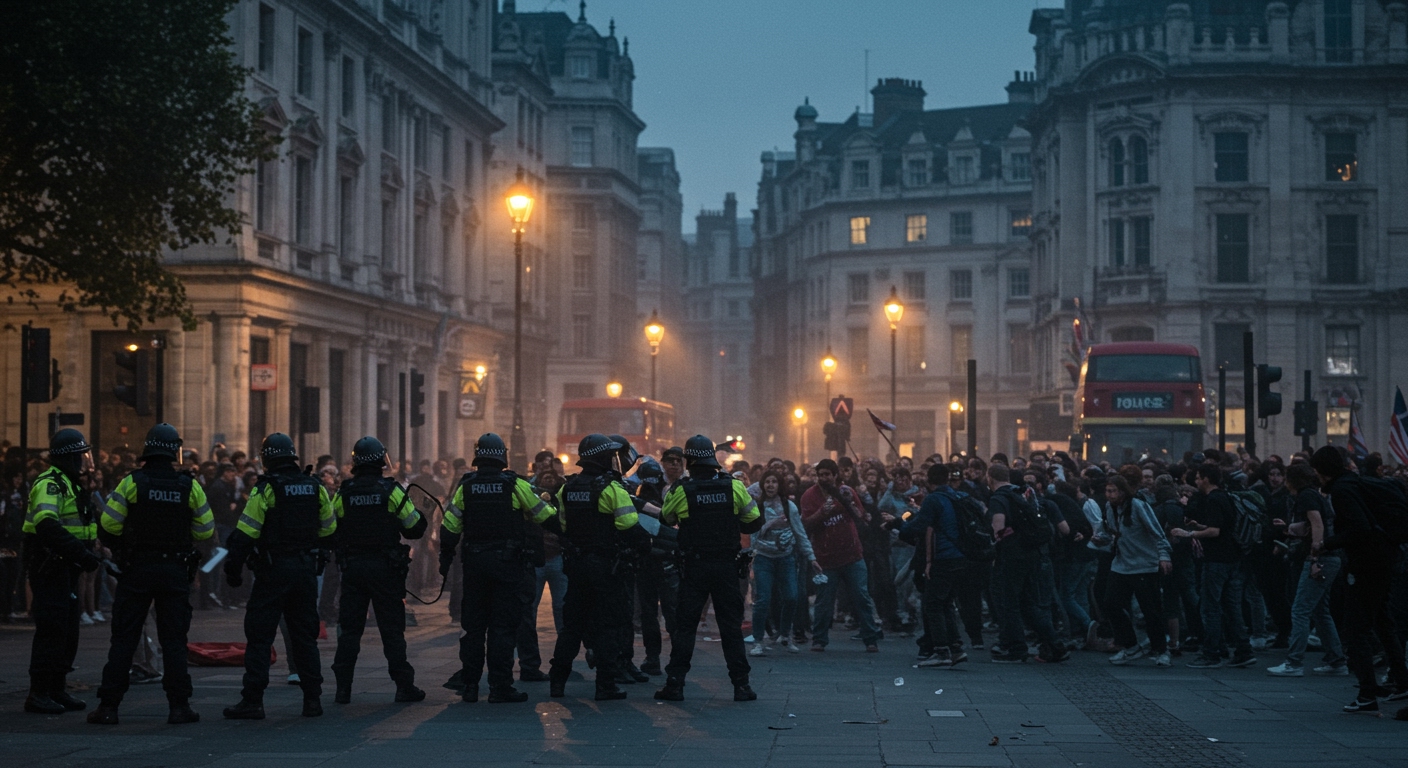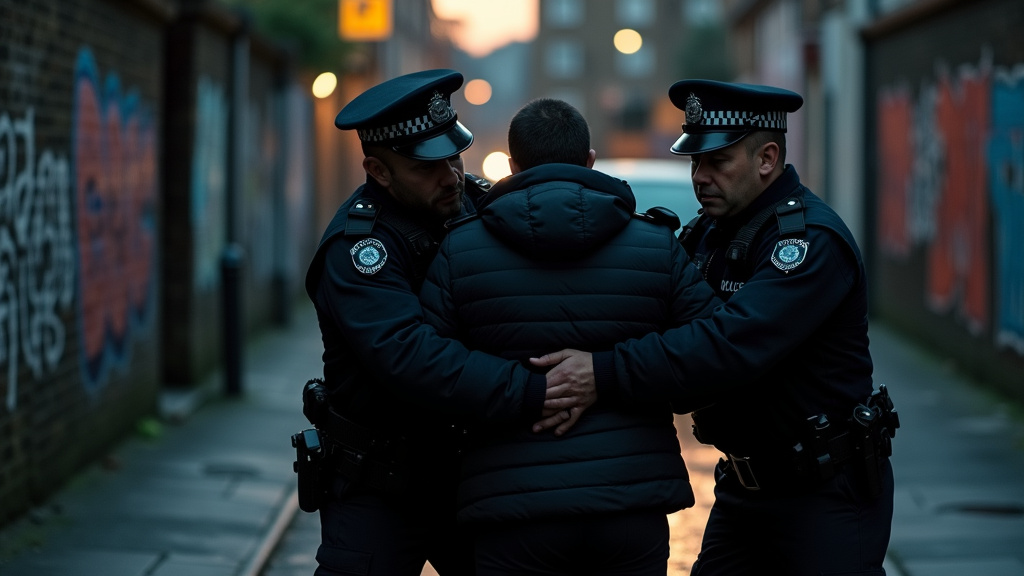LONDON – The British government announced Monday, June 23, 2025, its intention to proscribe the pro-Palestinian campaign group Palestine Action, classifying it as an organization subject to anti-terrorism legislation.
Home Secretary Yvette Cooper confirmed the government’s plan, stating that a draft proscription order would be formally presented before Parliament next week. This move marks a significant step, potentially criminalizing membership of or support for the group.
Government Cites Security Concerns and Recent Incident
The decision follows recent actions attributed to Palestine Action, most notably an incident that occurred last week at the Royal Air Force (RAF) Brize Norton base located in Oxfordshire. During this incident, two activists linked to the group allegedly breached the security perimeter.
Inside the base, the activists reportedly targeted two Airbus Voyager military aircraft. They are accused of causing significant damage by spraying red paint into the engines of the aircraft and using crowbars. The Ministry of Defence estimates the damage from this single incident to cost at least £30 million.
Palestine Action subsequently claimed responsibility for the action at RAF Brize Norton, stating it was a protest against the UK government’s backing of Israel’s actions in Gaza. The group asserted that Britain is an “active participant” in what they termed the “Gaza genocide.”
Legal Ramifications of Proscription
If the draft proscription order is approved by Parliament, it will carry serious legal consequences. Membership of or providing support to Palestine Action would become a criminal offense under UK law. The maximum penalty for such offenses is currently set at 14 years in prison.
Senior law enforcement figures have publicly condemned the group’s activities. Metropolitan Police chief Mark Rowley described Palestine Action as an “organized extremist criminal group,” indicating the severity with which authorities view their actions.
Protests and Police Clashes in London
The announcement of the proposed ban was met with swift reaction from supporters of Palestine Action. On Monday, coinciding with the government’s statement, protesters demonstrating in solidarity with the group clashed with police in London’s Trafalgar Square.
The confrontation occurred after police had issued a ban on a planned demonstration originally intended to take place outside Parliament, leading to tensions as protesters gathered elsewhere in central London.
Broader Context of Proscription
Proscription under UK anti-terrorism laws is a measure typically reserved for organizations deemed to be involved in terrorism or to promote or encourage it. Listing an organization effectively bans it and provides law enforcement agencies with powers to arrest and prosecute those who belong to or support it.
This proposed ban on Palestine Action would add the group to a list that currently includes dozens of international terrorist organizations. The government argues that the group’s methods, including damage to property and disruption of defense infrastructure, cross the line into criminal activity that justifies applying anti-terrorism measures.
The move is likely to be debated extensively in Parliament and by civil liberties groups, raising questions about the scope of anti-terrorism legislation and the right to protest.
The Path Forward
The fate of Palestine Action as a legal entity in the UK now rests with Parliament. The draft proscription order will undergo scrutiny by lawmakers next week. Should it pass, the group will join a list of banned organizations, significantly altering the legal landscape for its members and supporters.
The situation remains fluid, with the government signaling a firm stance against the group’s tactics, while supporters continue to voice their opposition to the potential ban through public demonstrations.





